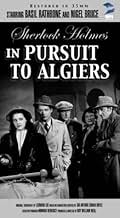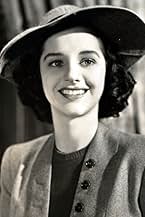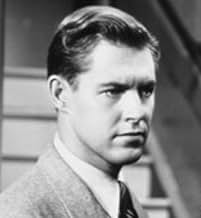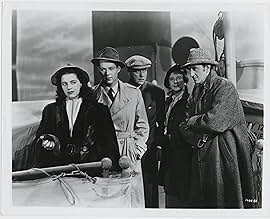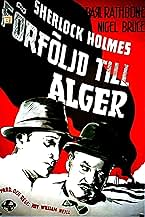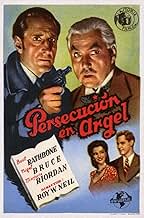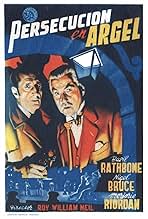IMDb RATING
6.7/10
4.4K
YOUR RATING
Holmes is recruited to escort the heir to a European throne safely back to his homeland after his father's assassination.Holmes is recruited to escort the heir to a European throne safely back to his homeland after his father's assassination.Holmes is recruited to escort the heir to a European throne safely back to his homeland after his father's assassination.
- Director
- Writers
- Stars
William 'Wee Willie' Davis
- Gubec
- (as Wee Willie Davis)
Frederick Worlock
- Prime Minister
- (as Frederic Worlock)
Wilson Benge
- Clergyman
- (uncredited)
Sven Hugo Borg
- Johansson
- (uncredited)
Ernst Brengt
- Ship Passenger
- (uncredited)
James Carlisle
- Aide
- (uncredited)
Ashley Cowan
- Steward
- (uncredited)
James Craven
- Anton Petzval
- (uncredited)
- Director
- Writers
- All cast & crew
- Production, box office & more at IMDbPro
Featured reviews
Most Consider this the Weakest in the Basil Rathbone-Nigel Bruce Series and it Probably is, but that Does Not Mean it is Unwatchable or Worthless. By this, the 12th of the Teams Pairing, the Charm for Fans has Made Itself Undeniable and Unobtrusive Despite Some Silliness and Liberties that the Movies So Often Exhibited.
Mostly Taking Place on an Ocean Liner it is Claustrophobic and Confined and the Supporting Cast is Less than Memorable Playing Weak and Ill Defined Villains. The Film does have a Nice Twist at the End and there is Enough Going On that it just Keeps from Getting Tedious.
Sherlock Keeps Most of His Personal Stingers Directed to Watson at Bay. The Final Line of the Movie is a Tongue in Cheek, In-Joke that is Charming and in Good Spirits.
Mostly Taking Place on an Ocean Liner it is Claustrophobic and Confined and the Supporting Cast is Less than Memorable Playing Weak and Ill Defined Villains. The Film does have a Nice Twist at the End and there is Enough Going On that it just Keeps from Getting Tedious.
Sherlock Keeps Most of His Personal Stingers Directed to Watson at Bay. The Final Line of the Movie is a Tongue in Cheek, In-Joke that is Charming and in Good Spirits.
Flicking through the channels I came across this old friend and laid the zapper down. Some of the other Rathbone Holmes' are better old friends, but this'll do admirably.
When we finally leave the convoluted and circuitous (as Holmes himself admitted) opening scenes behind and get to the foggy ship where the action takes place we can relax - this is familiar territory! Holmes and Watson with the game afoot and surrounded by shady omniscient characters, a well bred damsel on the run and (for a change) a King to protect. Watson sings for the damsel, in a dangerously resonant baritone, Holmes plays with a cracker that weighs a gram too much, the Giant Rat of Sumatra is explained away...or is it?
After watching the Definitive DVD, I learn that Martin Kosleck and Leslie Vincent were gay and living together. Nothing terribly unusual of course, but whenever I watch these Holmes films the usually intrusive world of sex never enters my head, so I admit I was surprised. Rathbone apparently was disappointed that his close friend Martin was associating with someone so "talentless" - in the acting department though Basil!
How at the climax did the baddies know Watson had forgotten to take his pipe with him? This tremendous stab in the dark (!) enabled them to rough up Holmes so much that his hair was mussed.
Still great stuff.
When we finally leave the convoluted and circuitous (as Holmes himself admitted) opening scenes behind and get to the foggy ship where the action takes place we can relax - this is familiar territory! Holmes and Watson with the game afoot and surrounded by shady omniscient characters, a well bred damsel on the run and (for a change) a King to protect. Watson sings for the damsel, in a dangerously resonant baritone, Holmes plays with a cracker that weighs a gram too much, the Giant Rat of Sumatra is explained away...or is it?
After watching the Definitive DVD, I learn that Martin Kosleck and Leslie Vincent were gay and living together. Nothing terribly unusual of course, but whenever I watch these Holmes films the usually intrusive world of sex never enters my head, so I admit I was surprised. Rathbone apparently was disappointed that his close friend Martin was associating with someone so "talentless" - in the acting department though Basil!
How at the climax did the baddies know Watson had forgotten to take his pipe with him? This tremendous stab in the dark (!) enabled them to rough up Holmes so much that his hair was mussed.
Still great stuff.
The Sherlock Holmes Series is actually fun for the fans of Basil Rathbone and Nigel Bruce, but the individual films are a mixed bag as mysteries themselves. The best mysteries are THE SCARLET CLAW, THE HOUSE OF FEAR, THE ADVENTURES OF SHERLOCK HOLMES, THE HOUND OF THE BASKERVILLES, SHERLOCK HOLMES FACES DEATH. The ones about the war are mediocre - more like curiosities dealing with patriotism and the war effort. After the war the series resumed plots dealing with regular crime. The best of these was THE PEARL OF DEATH, but it was not up to the top five films. One of the final films was this one, PURSUIT TO ALGIERS.
Although all the other films were rewritten from the original Conan Doyle stories, PURSUIT TO ALGIERS was totally made up from a comment dropped in the original "Canon". Doyle wrote four novels and fifty six short stories about Holmes. But in this material (equal in size to say LES MISERABLES or DON QUIXOTE) were many little comments and statements that actually have helped lead to the myriad of essays and books by Holmes' fans. Among other things are the large number of cases of Holmes that he or Watson mention casually, but never write of. In this film, the untold story is "the affair of the steamship "Friesland" that so nearly cost us both our lives". It is mentioned in one of the stories of the series called THE RETURN OF SHERLOCK HOLMES, and is usually said to be set in 1895. The actions of PURSUIT TO ALGIERS take place on the steamship "Friesland", and do almost cost Holmes and Watson their lives, but this film is set after the end of World War II. Since there was no real short story that is nothing to be critical about.
Holmes is not in part of the film (and at one point it seems he has been killed), but he does appear about the middle, and he is in good form when he is. Witness the way he takes care of Martin Kosleck, and the way he makes a typically ironic comment to Kosleck as to why he was able to be prepared. Also the business about party favors is quite nicely done. So are the supporting parts - especially Bruce's comments regarding Rosalind Ivan and John Abbott and his partner. As an entertainment it is a fine film. As a mystery it really never gets very involving. We never understand who is in the background backing the anti-royal assassins. Presumably the Communists (this is 1945), but such a guess is based on the number of Eastern European monarchies that fell following the end of World War II. Still it would help to know who the super-villain is. But then Hitchcock always ignored the central rationales of his "MacGuffins". Why not on this lesser level then? So forget the pleasure of realism, sit back, and just enjoy the antics of the characters. And keep in mind, Basil and Nigel made only two other of these films afterward. It was nearly the end of the series for them and their fans.
Although all the other films were rewritten from the original Conan Doyle stories, PURSUIT TO ALGIERS was totally made up from a comment dropped in the original "Canon". Doyle wrote four novels and fifty six short stories about Holmes. But in this material (equal in size to say LES MISERABLES or DON QUIXOTE) were many little comments and statements that actually have helped lead to the myriad of essays and books by Holmes' fans. Among other things are the large number of cases of Holmes that he or Watson mention casually, but never write of. In this film, the untold story is "the affair of the steamship "Friesland" that so nearly cost us both our lives". It is mentioned in one of the stories of the series called THE RETURN OF SHERLOCK HOLMES, and is usually said to be set in 1895. The actions of PURSUIT TO ALGIERS take place on the steamship "Friesland", and do almost cost Holmes and Watson their lives, but this film is set after the end of World War II. Since there was no real short story that is nothing to be critical about.
Holmes is not in part of the film (and at one point it seems he has been killed), but he does appear about the middle, and he is in good form when he is. Witness the way he takes care of Martin Kosleck, and the way he makes a typically ironic comment to Kosleck as to why he was able to be prepared. Also the business about party favors is quite nicely done. So are the supporting parts - especially Bruce's comments regarding Rosalind Ivan and John Abbott and his partner. As an entertainment it is a fine film. As a mystery it really never gets very involving. We never understand who is in the background backing the anti-royal assassins. Presumably the Communists (this is 1945), but such a guess is based on the number of Eastern European monarchies that fell following the end of World War II. Still it would help to know who the super-villain is. But then Hitchcock always ignored the central rationales of his "MacGuffins". Why not on this lesser level then? So forget the pleasure of realism, sit back, and just enjoy the antics of the characters. And keep in mind, Basil and Nigel made only two other of these films afterward. It was nearly the end of the series for them and their fans.
Despite planning a fishing and shooting holiday in Scotland, Holmes and Dr Watson are approached to help smuggle the Prince Royal of another country back into his homeland. The King has been assassinated already and the Prince is feared to be next. Holmes and the Prince go by plane while Watson travels by boat as a decoy. When Holmes' plane is shot down Watson fears the worst until he finds that Holmes et al are already on the boat. With many days left before Algiers, Holmes must outwit the assassins he suspects are onboard.
I've always enjoyed Watson's contribution to these films just as much as I have Holmes, so I was worried when it looked like Watson would be separated from Holmes for the film. So imagine my happiness when the film actually followed Watson rather than Holmes. Although the film brings Holmes back together with Watson quite quickly, it does give Watson a lot more screen time and respect than they usually do - even going as far to have Holmes praise Watson for his observational skills! This makes a refreshing change - of course Holmes is still the star but it is nice to see him on an almost equal platform for once.
The plot itself is a little worrying at the start but settles once Watson gets on the ship. It allows for some gentleman playing between Holmes and his pursuers who are known to him. This is fun and allows for some nice twists toward the end. The whole thing about the stolen jewels was lost on me and just distracted from the main narrative.
Rathbone is as good as ever and is well worth watching but it is Bruce that impresses here. He does his usual stuff but he gets time to do it and it is fun to see him not being put down by Holmes so much. Holmes' pursuers are better than his usual foes - the amount of screen time that they share and the fact that they are known to each other makes it more enjoyable.
This is a great entry in the series. Bruce rises to the occasion and the twisty confrontation on the ship is very enjoyable as Holmes stays one step ahead. And, having seen the last couple of films end on Holmes giving moral speeches here the film ends on a killer line from Holmes where he advises Watson `never become an actor' - hilarious!
I've always enjoyed Watson's contribution to these films just as much as I have Holmes, so I was worried when it looked like Watson would be separated from Holmes for the film. So imagine my happiness when the film actually followed Watson rather than Holmes. Although the film brings Holmes back together with Watson quite quickly, it does give Watson a lot more screen time and respect than they usually do - even going as far to have Holmes praise Watson for his observational skills! This makes a refreshing change - of course Holmes is still the star but it is nice to see him on an almost equal platform for once.
The plot itself is a little worrying at the start but settles once Watson gets on the ship. It allows for some gentleman playing between Holmes and his pursuers who are known to him. This is fun and allows for some nice twists toward the end. The whole thing about the stolen jewels was lost on me and just distracted from the main narrative.
Rathbone is as good as ever and is well worth watching but it is Bruce that impresses here. He does his usual stuff but he gets time to do it and it is fun to see him not being put down by Holmes so much. Holmes' pursuers are better than his usual foes - the amount of screen time that they share and the fact that they are known to each other makes it more enjoyable.
This is a great entry in the series. Bruce rises to the occasion and the twisty confrontation on the ship is very enjoyable as Holmes stays one step ahead. And, having seen the last couple of films end on Holmes giving moral speeches here the film ends on a killer line from Holmes where he advises Watson `never become an actor' - hilarious!
The definitive movie Sherlock Holmes is Basil Rathbone; the definitive movie Dr. Watson is Nigel Bruce. Together, these two brilliant actors made fourteen Sherlock Holmes films between 1939 and 1946, most of them loosely based on stories by Arthur Conan Doyle; a few based on Doyle stories in name only. All are thrilling, exciting excursions into the realm of mystery and deductive reasoning, even the later low-budget ones.
The original pairing of the super sleuth with his bumbling if lovable assistant portrayed by Rathbone and Bruce was in "The Hound of the Baskervilles," where star billing went to Richard Greene as Sir Henry Baskerville. The popularity of Holmes and Watson showed the studio that the audience cared more for the two supporting players than for the somewhat stiff Greene. Next time in "The Adventures of Sherlock Holmes," Rathbone and Bruce deservedly received top billing.
During World War II with England in peril from the Luftwaffe, Holmes and Watson were utilized to booster the war spirit. Holmes could be heard at the end of the war-time films haranguing his fellow countrymen and their ally, the United States, about patriotism and gallantry. Winston Churchill was touted as the savior of his nation.
"Pursuit to Algiers," based on Doyle's "The Return of Sherlock Holmes," finds the crafty detective helping escort Nikolas (Leslie Vincent), heir of a foreign country and a target for conspirators, to assume his crown following the assassination of his predecessor. There are many clever scenes involving Dr. Watson unknowingly being used as a decoy to protect Nikolas. When Nikolas' supporters first contact Holmes surreptitiously, they employ a ruse involving a fish and chips cypher, beyond Watson's grasp. In the process Watson is propositioned by a hooker who calls the good doctor, Ducky, much to his chagrin. Holmes takes the high road by plane; Watson takes the low road by boat. There is much chicanery aboard the ship that takes up most of the movie. The ending may come as a surprise for many.
One of the high points of "Pursuit to Algiers" is Watson's story of "The Giant Rat of Sumatra." Entreated by his fellow passengers to tell about one of Sherlock Holmes' greatest adventures, Watson volunteers to entertain all with his giant rat fable. His use of inanimate objects on the table for purposes of illustration to make the exploits he relates more colorful is well worth the price of admission.
There are more songs than usual for a Sherlock Holmes outing. Such traditional Scottish airs as "Flow Gently Sweet Afton," sung by Marjorie Riordan as a girl from Brooklyn named Sheila Woodbury with something hidden in her sheet music satchel and "Loch Lomond," sung by Watson himself, not only serve as icing but are utilized to embellish the plot.
The twelfth in the Sherlock Holmes series and coming at the end of the war, "Pursuit to Algiers" is one of the most entertaining of the lot and there is no rousing speechifying by Holmes at the end. Those speeches were wonderful morale buildings at the time, but are a bit quaint for today's audiences.
The original pairing of the super sleuth with his bumbling if lovable assistant portrayed by Rathbone and Bruce was in "The Hound of the Baskervilles," where star billing went to Richard Greene as Sir Henry Baskerville. The popularity of Holmes and Watson showed the studio that the audience cared more for the two supporting players than for the somewhat stiff Greene. Next time in "The Adventures of Sherlock Holmes," Rathbone and Bruce deservedly received top billing.
During World War II with England in peril from the Luftwaffe, Holmes and Watson were utilized to booster the war spirit. Holmes could be heard at the end of the war-time films haranguing his fellow countrymen and their ally, the United States, about patriotism and gallantry. Winston Churchill was touted as the savior of his nation.
"Pursuit to Algiers," based on Doyle's "The Return of Sherlock Holmes," finds the crafty detective helping escort Nikolas (Leslie Vincent), heir of a foreign country and a target for conspirators, to assume his crown following the assassination of his predecessor. There are many clever scenes involving Dr. Watson unknowingly being used as a decoy to protect Nikolas. When Nikolas' supporters first contact Holmes surreptitiously, they employ a ruse involving a fish and chips cypher, beyond Watson's grasp. In the process Watson is propositioned by a hooker who calls the good doctor, Ducky, much to his chagrin. Holmes takes the high road by plane; Watson takes the low road by boat. There is much chicanery aboard the ship that takes up most of the movie. The ending may come as a surprise for many.
One of the high points of "Pursuit to Algiers" is Watson's story of "The Giant Rat of Sumatra." Entreated by his fellow passengers to tell about one of Sherlock Holmes' greatest adventures, Watson volunteers to entertain all with his giant rat fable. His use of inanimate objects on the table for purposes of illustration to make the exploits he relates more colorful is well worth the price of admission.
There are more songs than usual for a Sherlock Holmes outing. Such traditional Scottish airs as "Flow Gently Sweet Afton," sung by Marjorie Riordan as a girl from Brooklyn named Sheila Woodbury with something hidden in her sheet music satchel and "Loch Lomond," sung by Watson himself, not only serve as icing but are utilized to embellish the plot.
The twelfth in the Sherlock Holmes series and coming at the end of the war, "Pursuit to Algiers" is one of the most entertaining of the lot and there is no rousing speechifying by Holmes at the end. Those speeches were wonderful morale buildings at the time, but are a bit quaint for today's audiences.
Did you know
- TriviaThe film contains a couple of clever in-jokes for Holmes aficionados in the form of references to famous unrecorded cases for the Great Detective: at one point Watson begins to recite the tale of The Giant Rat of Sumatra (mentioned in Conan Doyle's "The Adventure of the Sussex Vampire"); whilst the action takes place aboard the S.S. Friesland (from Conan Doyle's "The Adventure of the Norwood Builder", and alluded to as "a Dutch-American liner" in his Professor Challenger book "The Lost World", though here it has links to Malmö in Sweden). The film also borrows some characters and events from "The Adventure of the Red Circle."
- GoofsDr Watson discovers an automatic pistol --- i.e., one with a slide-in ammo-clip instead of a rotating cylinder --- in a lady passenger's handbag. He consistently refers to the handgun as a revolver. An ex-Army officer like Watson, no matter how daft, would never make such an "obvious" mistake.
- Quotes
Sherlock Holmes: Possibly, poison is a woman's weapon.
- ConnectionsEdited into Who Dunit Theater: Sherlock Holmes and Pursuit to Algiers (2021)
- How long is Pursuit to Algiers?Powered by Alexa
Details
- Release date
- Country of origin
- Language
- Also known as
- Pursuit to Algiers
- Filming locations
- Production company
- See more company credits at IMDbPro
- Runtime1 hour 5 minutes
- Color
- Aspect ratio
- 1.37 : 1
Contribute to this page
Suggest an edit or add missing content


